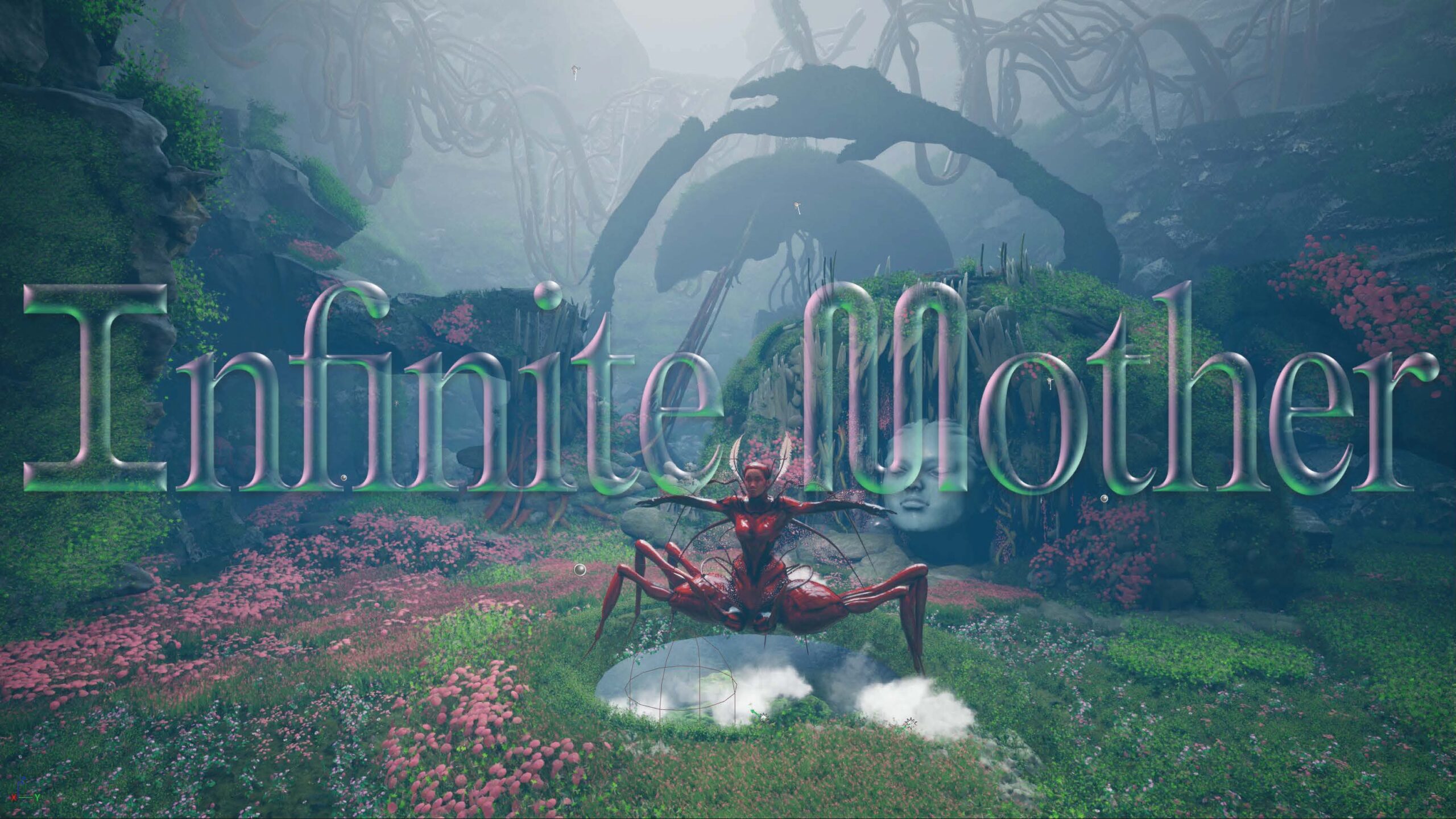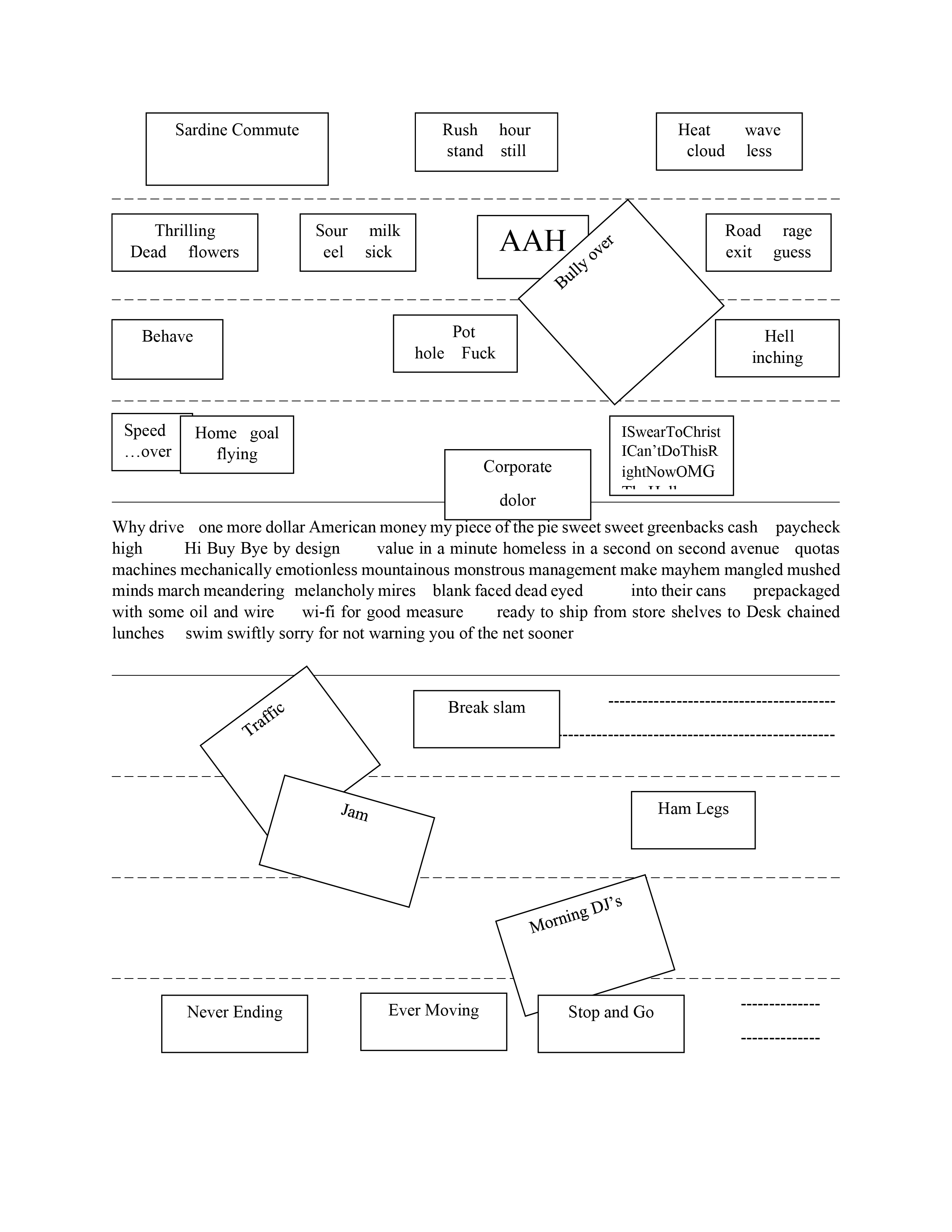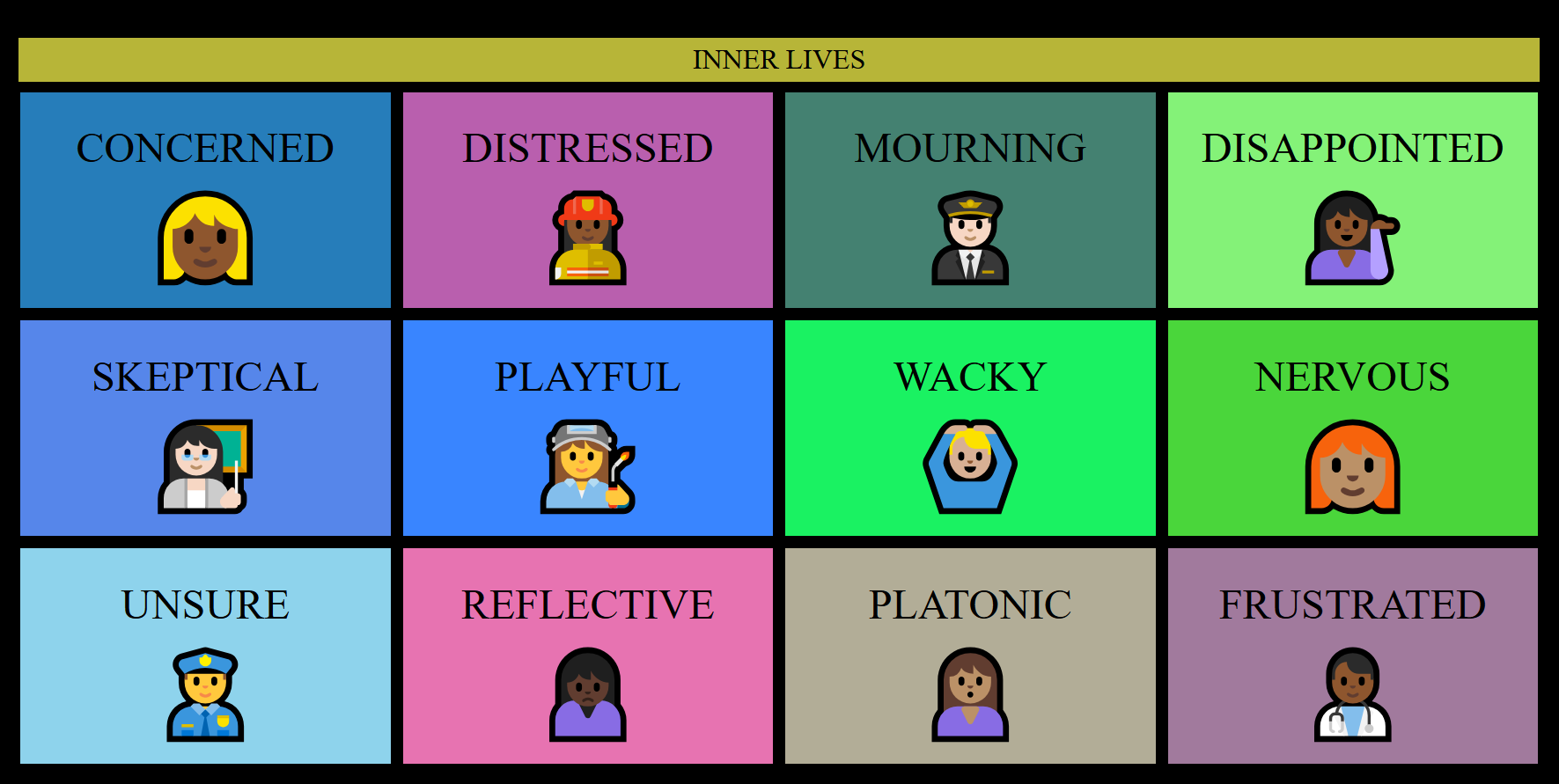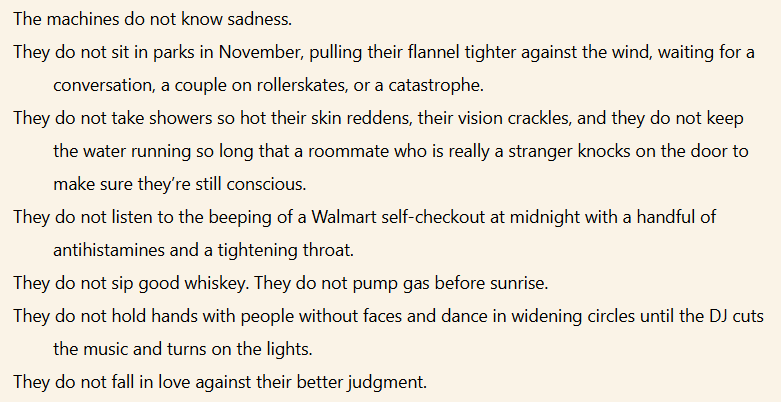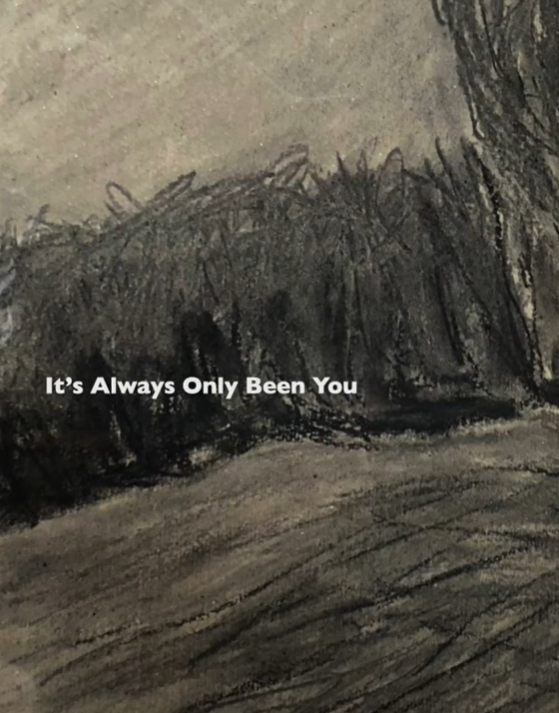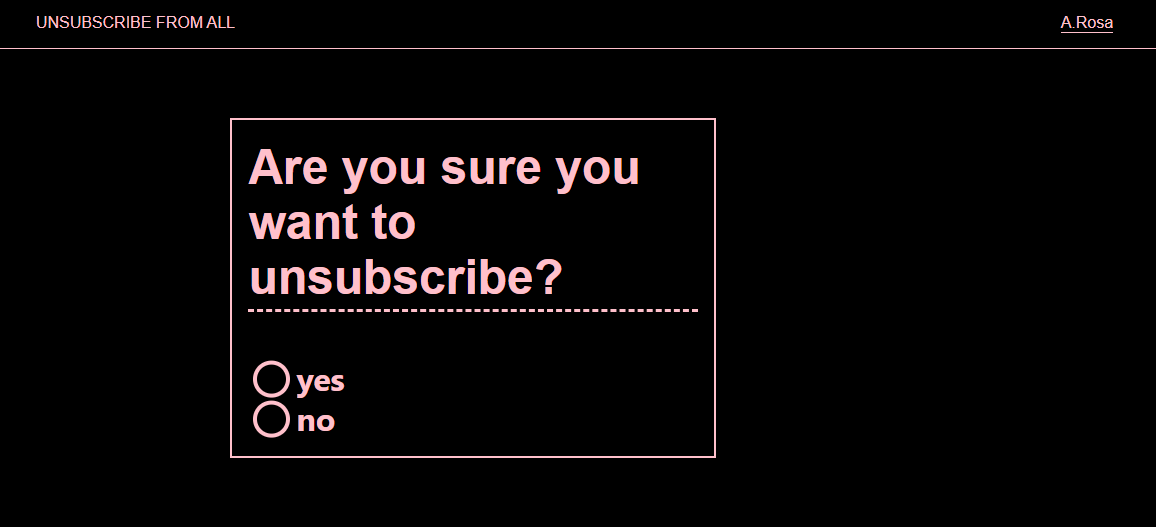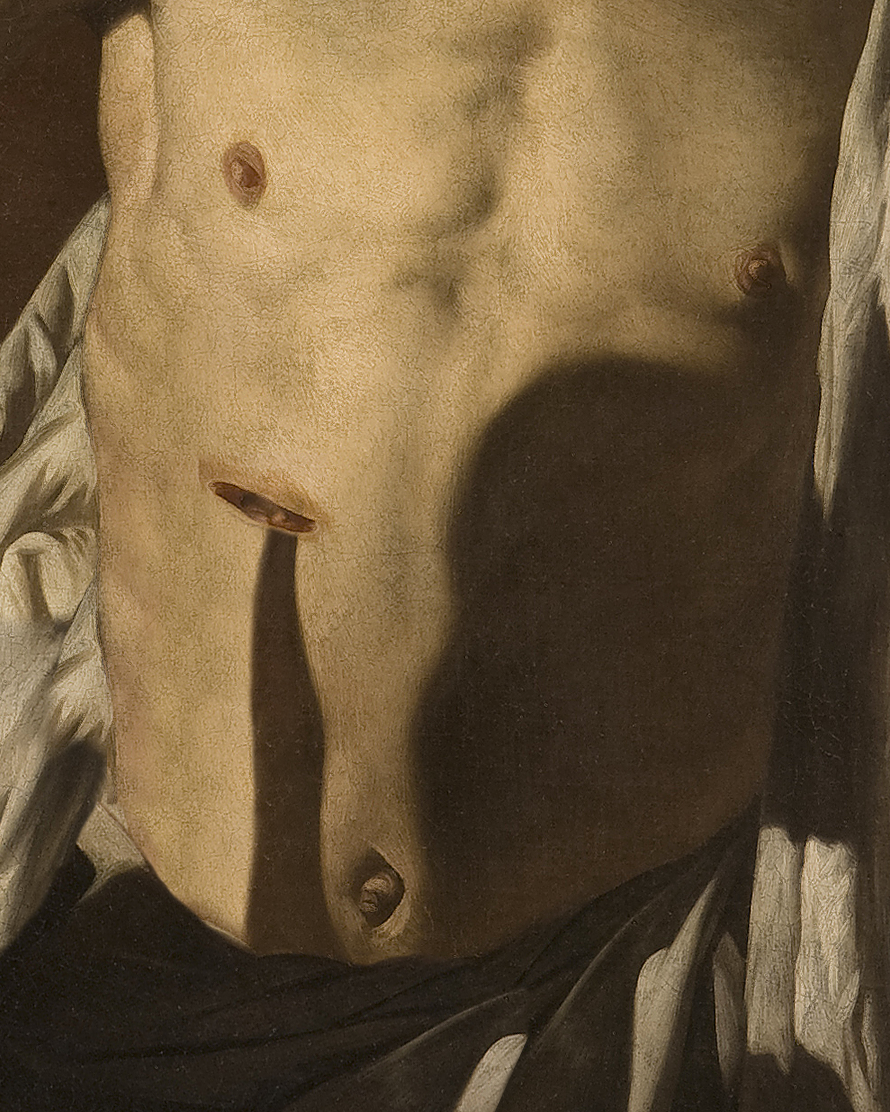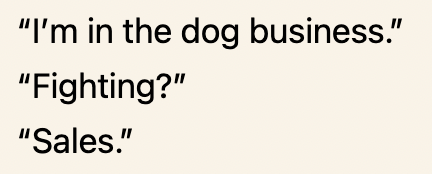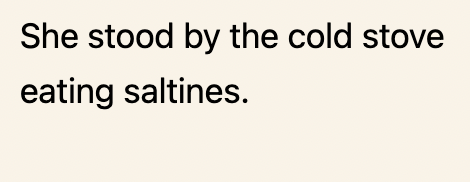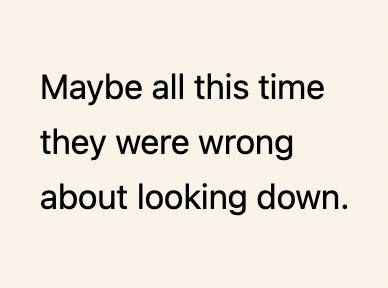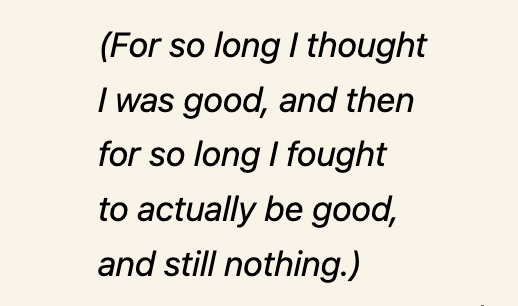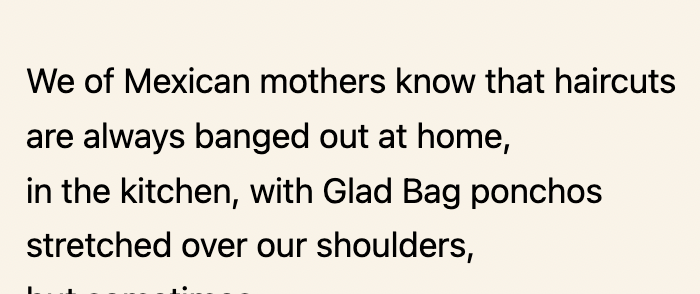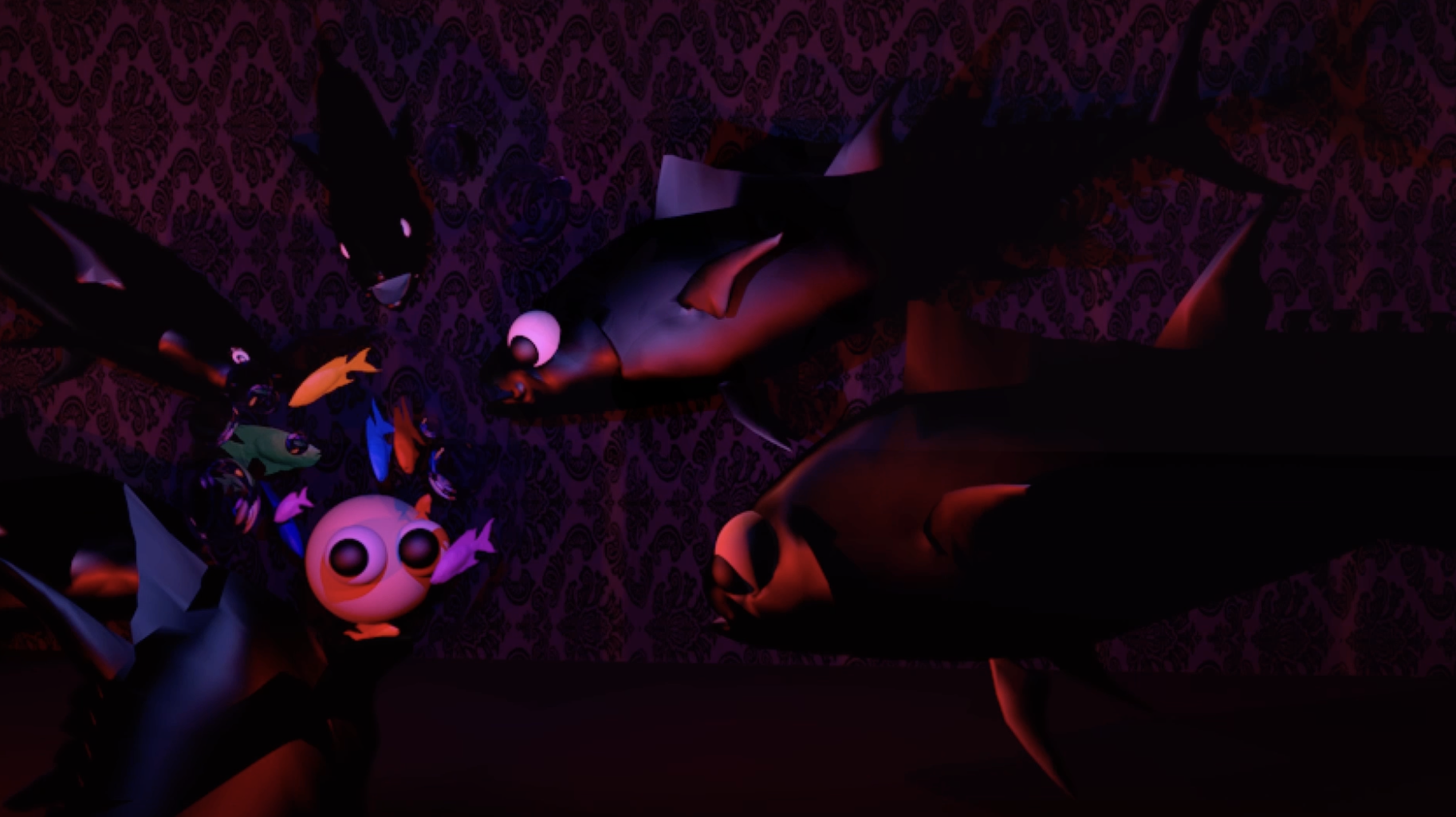Spring 2024 Editors’ Note
By Emilia Borjas and Mary Fischer
Welcome to the Spring 2024 issue of The New River: A Journal of Digital Art & Literature. Is it possible our salvation may be found in attention? Not scrolling or looking away, not making quick categorizations or calculations, but attempting to see and witness. When The New River was founded, no one knew the shape our world would take twenty eight years later, when “digitality” is regarded as a curse as often as it is a blessing. We glance at genocide on tiny screens; we fear and embrace the AI chatbots that crack jokes and threaten to steal our jobs, our manuscripts and our exceptionality. We experience more stimuli digital and otherwise today than we did even 28 years ago. With that said, we invite you to engage–using your whole heart and mind–with these pieces of electronic literature and digital art.
At such a pivotal time when we are questioning what it means to be human at all–and what this asks of us–several themes emerged from our selected pieces, with much overlap across works: liminality, reality versus representation, grief and play. Please note that many of the works we present are best experienced on a computer rather than a smartphone.
Liminality
A recurring question when creating an issue of The New River is: where is the line between digital and analog media, or genre and genre? Since 2020 we’ve grappled with the question of “back to normal” and the unreachability of such an idea. We live not in a previous “normal,” nor in our imagined future. Not here, not there, but somewhere in between. Much of our time on the internet is spent being nowhere at all: encountering popups, loading screens, questionnaires, filtering out spam emails and ads. This noplace is demonstrated in Agustin Rosa’s “Unsubscribe From All,” in which a web-based unsubscription form becomes a choose-your-own-adventure horror story. Paranoia builds as the story progresses: do we ever know quite where we are when we are on the internet? Much of our time in the world is spent waiting on circumstances or relationships, answers or endings. “It’s Always Only Been You” by Emi Wood Scully depicts the inherent in-between-ness of an ICU stay–not knowing the outcome of the night, or how the relationship between patient and loved one might be forced to change. Hospital sights and sounds grow familiar, even homey, in the waiting space.
Reality Versus Representation
Electronic literature forces us to confront the chasm between what is real and how we render it. In “Sardine Commute,” a visual poem that playfully renders the visceral experience of the work commute, Chris Fohl uses primitive digital tools to illustrate a scene of a packed highway, creating a piece which looks excavated from the early days of the internet. Though it is conveyed through symbols and simple words, the sensation of chaos comes through clearly. With each click, “Inner Lives” by Leonardo Flores generates a grid of 12 randomly chosen emojis, each one paired with a word representing a mood or emotion. It is uncanny to see a smiling chef, cartoonishly rendered, paired with the word “Sickened.” The dissonance of image versus word encourages us to consider the flatness and unreality of our digital experiences in comparison to who is really there behind the screen. Flores invites the audience to consider how little we know about the inner lives of those we encounter every day. Interiority is also present in THIS JUST IN by Isha Pati. In this prose piece, the narrator follows a newscaster co-host as he stalks his co-anchor newscaster. He interrogates his perception of his fellow newscaster as both a person and a mediated personality while also grappling with his own feelings of inadequacy & envy through both serious and humorous series of events.
Grief and Play
Change necessitates grief. As technology accelerates our rate of change on Earth–climate change, lifestyle change, culture change–we sense this loss constantly. We see it in the trend cycle and in collective nostalgia culture. E.C. Gannon’s “Where the Poems Are” presents a defiance about what AI can and cannot replace in our lives. Yet it’s hard not to interpret the poem’s assertions as anxious rather than confident, knowing how many times human beings have claimed robots will never be able to do this, only to be proven wrong. In Gannon’s resistance, which we do not know yet to be futile or not, there is a kind of mourning for a world before. Yet because grief can be a portal which allows us to see things differently than we used to, it encourages curiosity, levity and playfulness. Just as loss changes us into something else, so does play. It’s a child psychology cliche that play is serious work. Pearlyn Lii’s video game film “Infinite Mother_v1.0” examines this paradox, taking the format of a game play-through in order to process childhood neglect. The protagonist’s wounded relationship with her mother is expressed in her physical transformation into an insectoid. Loss forces adaptation, often in strange ways.
We are grateful to our contributors for offering up their work, which opens up slowly to those willing to see.
Spring 2024 Contributor Bios
Leonardo Flores (he/him/él) is Chair of the English Department at Appalachian State University. He served as President of the Electronic Literature Organization from 2019 to 2022. He was the 2012-2013 Fulbright Scholar in Digital Culture at the University of Bergen in Norway and was a professor in the English Department at University of Puerto Rico: Mayagüez Campus from 1994 to 2019. His research areas are electronic literature, with a focus on digital poetry, and the history and strategic growth of the field. He’s known for I ♥ E-Poetry, the Electronic Literature Collection, Volume 3, “Third Generation Electronic Literature” and the Antología Lit(e)Lat, Volume 1. For more information on his current work, visit leonardoflores.net.
Christopher Fohl is a poet from Dayton who uses his work to explore modern life, the environment, and depression.
E.C. Gannon (she/her) has been published or is forthcoming in Assignment Magazine, The Meadow, Molecule, Olit, and elsewhere. A New England native, she holds a degree in Creative Writing and Political Science from Florida State University.
Pearlyn Lii (s/her, b. 1993 Hong Kong) is an interdisciplinary artist whose practice investigates personhood, neomythology, and the divine feminine. Her work narrates the plight of the human experience through fictional characters in alternate realities, reinterpreting the digital space as a form of modern kinmaking. Drawing from mythology, science, and fiction Lii grapples with pain, loss, and memory, particularly in matrilineage. Her work manifests through video game animation, augmented reality, AI, and embodied performances.
Isha Pati is a BFA3 Comedy Arts major/Screenwriting minor at The Theatre School at DePaul University. Isha writes, performs in, and produces plays, musicals, comedy sketch shows, and short films around Chicago. Pati is also the editor-in-chief of bitrakehumor.com and a joke writer for the podcast Brutally Delicious. Isha is looking for theatre/film writing/production jobs or internships, has experience on set and in writer’s rooms, and is eager to contribute in any way possible!
Agustin Rosa is a writer, editor, curator and sculptor from Rosario, Argentina currently living in Baltimore, Maryland. They are the editor-in-chief of DEAD ALIVE PRESS, which explores the intersection of tech and publishing as well as one of the founders of Sleepwalker Collective, a DIY curation space serving local artists. They are an alumni of School for Poetic Computation and have earned a B.A. in Creative Writing from Columbia University and an M.F.A. in Studio Art at Maryland Institute College of Art.
Emi Wood Scully (she/her) is a fourth-year PhD Candidate in Literature at the University of Tennessee, Knoxville. There she is the social media editor for Grist, UT’s nationally distributed literary journal. She is a budding Virginia Woolf and James Joyce scholar. When she is not working on her dissertation, you can find her: painting and drawing, singing, and trying new vegan recipes. You can read some of her published poems on her website: http://emiwoodscully.com/.
